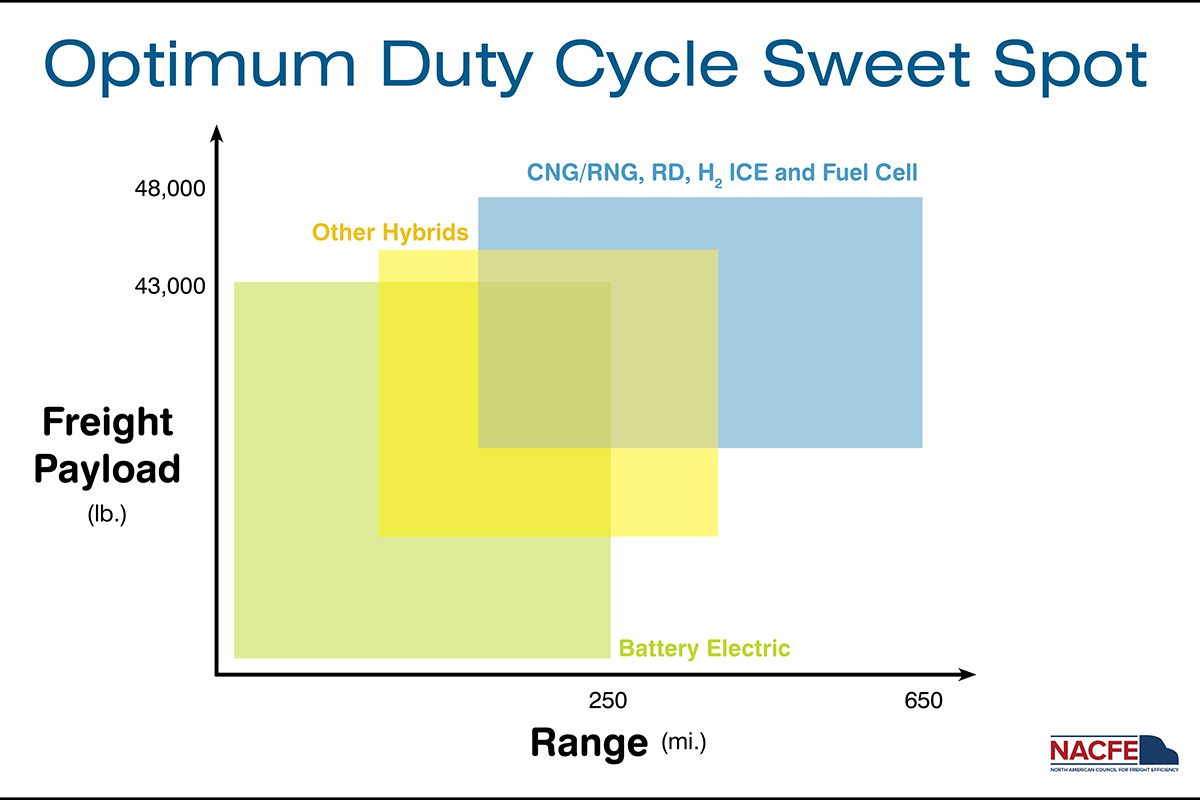The heart of messaging is consistency. The recent ACT EXPO in Anaheim was replete with catch phrases and thematic sayings.
As one of the NACFE progenitors branding the future of zero-emission transition as the “Messy Middle,” I am thrilled to repeatedly hear that “there is no one solution to replace diesel trucks.” The “glidepath” to emission reduction goals was another favorite.
I regret not turning the opportunity into a lottery for the attendees to wager on how many times permutations of phrases were spoken during the packed four-day event.
Maybe, Erik Neandross, GNA’s organizer and event host, can add that to next year’s ACT EXPO conference application.
A notable variation of this message by PACCAR’s Chief Technology Officer John Rich was that fleets and OEMs, “will have an increasingly mixed product line.” This highlights that replacing the diesel “Swiss army knives of trucks” will be done by increasingly purpose-built vehicles, optimized for focused duty cycles.
In this future, another consistent message was that the growing numbers of both battery-electric and hydrogen fuel cell vehicles will work side by side covering different parts of the payload vs. range spectrums.
The messaging was also very consistent that there was need for and room for a “plethora” of other solutions to all help move commercial transportation towards a zero-emission future.
Critical to making progress will be for all segments of the trucking industry to work as a team, to share information and lessons learned, and to be inclusive of all the partners — especially utilities, charging system suppliers, warehouse operators, shippers, fleets, regulators, and technology providers.
All the new technologies, whether molecular fuel or electron based, require huge growth in infrastructure, requiring electric energy production and distribution to grow on the scale of the deployment of the national highway system begun under President Eisenhower.
One exception to the consistent messaging was a charging company’s on-stage statement that there is no future in hydrogen, which was nearly immediately contested by other panelists, then upstaged by PACCAR’S bold main stage announcement of Kenworth and Peterbilt fuel cell tractors entering production this year, through a partnership with Toyota.
“In production” was another well used term at ACT EXPO according to Mike Roeth, executive director of NACFE. He pointed out that there are many interpretations of that phrase as documented in the NACFE report Defining Production.
Many early adopters of new zero-emission technologies were adamant that drivers, fleet maintenance personnel, and the public were thrilled with the quiet, odor-free, clean trucks.
The road to the future will not be smooth. Many speakers highlighted that many challenges exist, but consistently felt this industry was up to them as long as we all work as a team.
NACFE’S Run on Less – Electric DEPOT demonstration is an example of that industry commitment to sharing information. Eight fleets are allowing visibility into their battery-electric vehicle deployments with significant numbers of battery-electric trucks at each facility. The insights from firsthand, real-world data will be immensely useful.
As Covenant’s Matt McClelland, vice president of sustainability and innovation, so aptly stated on stage: “Without data, you’re just another person with an opinion.”
The reality for all of us is that in the excitement and challenge of new cleaner transportation technologies, the trucking industry must still pay attention to fundamentals like positive cash flow; positive return on investment; total cost of ownership; efficiency from tires, aerodynamics, and weight reduction; and optimizing asset utilization.
The ACT EXPO speakers, especially OEMs and fleets, universally displayed an unwavering optimism that costs for zero-emission technologies would, as Peter Voorhoeve, president of Volvo trucks said, “of course, the more you build the cheaper it gets.” Many speakers have faith that the new technologies will continually improve in performance and total cost of ownership. They consistently expect that infrastructure will build out and become more robust. The speakers over the four-day ACT EXPO event are convinced that zero-emission goals are achievable.
A few years ago, the CEO of Daimler Trucks, Martin Daum, proclaimed during ACT EXPO’s keynote address that, “the future is electric,” successfully branding the rise of zero-emission technologies with excitement in freight transportation. Judging by the massive attendance and impressive content at ACT EXPO 2023, Daum’s prediction was prescient.



